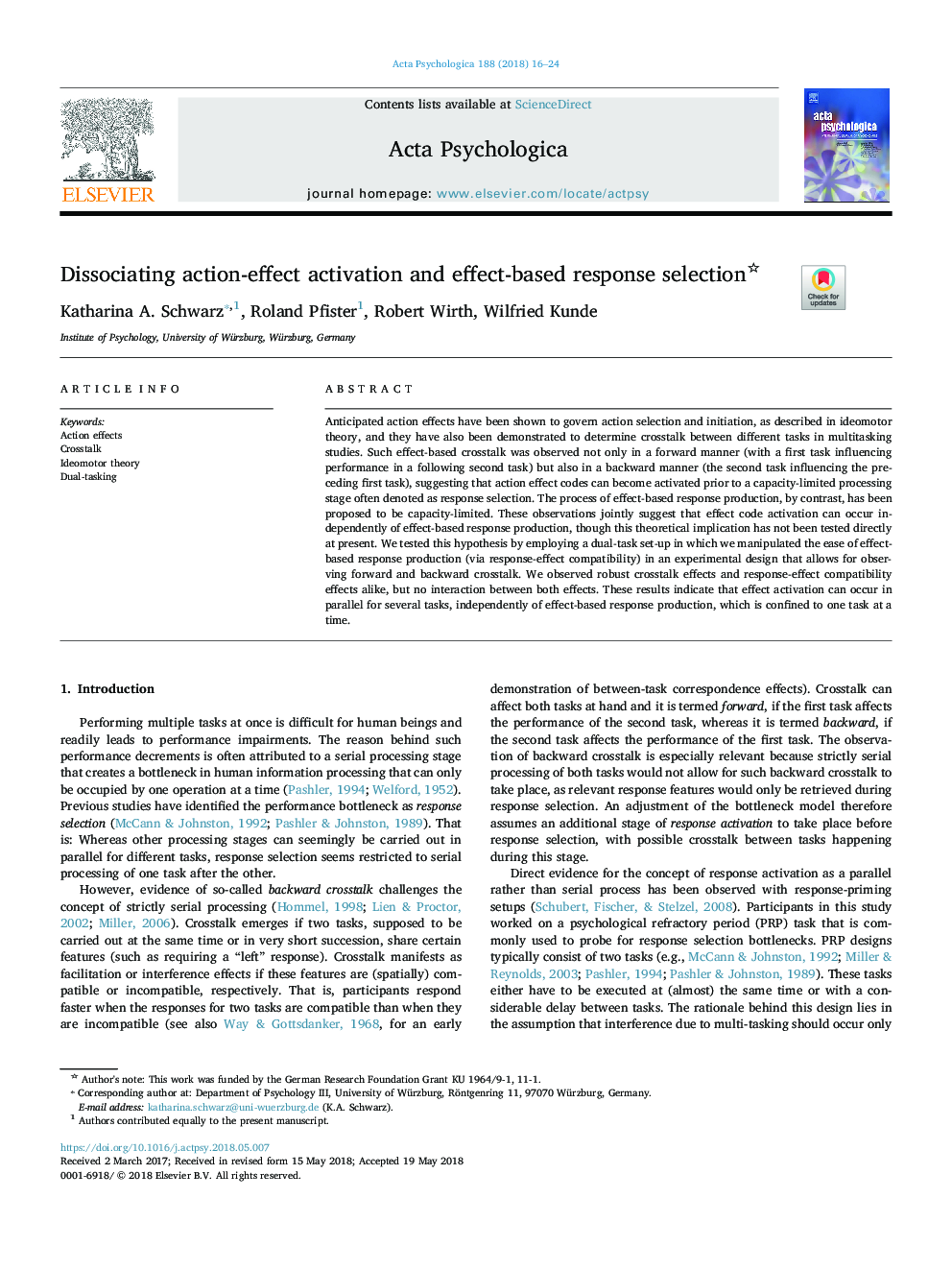| Article ID | Journal | Published Year | Pages | File Type |
|---|---|---|---|---|
| 7276558 | Acta Psychologica | 2018 | 9 Pages |
Abstract
Anticipated action effects have been shown to govern action selection and initiation, as described in ideomotor theory, and they have also been demonstrated to determine crosstalk between different tasks in multitasking studies. Such effect-based crosstalk was observed not only in a forward manner (with a first task influencing performance in a following second task) but also in a backward manner (the second task influencing the preceding first task), suggesting that action effect codes can become activated prior to a capacity-limited processing stage often denoted as response selection. The process of effect-based response production, by contrast, has been proposed to be capacity-limited. These observations jointly suggest that effect code activation can occur independently of effect-based response production, though this theoretical implication has not been tested directly at present. We tested this hypothesis by employing a dual-task set-up in which we manipulated the ease of effect-based response production (via response-effect compatibility) in an experimental design that allows for observing forward and backward crosstalk. We observed robust crosstalk effects and response-effect compatibility effects alike, but no interaction between both effects. These results indicate that effect activation can occur in parallel for several tasks, independently of effect-based response production, which is confined to one task at a time.
Related Topics
Life Sciences
Neuroscience
Cognitive Neuroscience
Authors
Katharina A. Schwarz, Roland Pfister, Robert Wirth, Wilfried Kunde,
